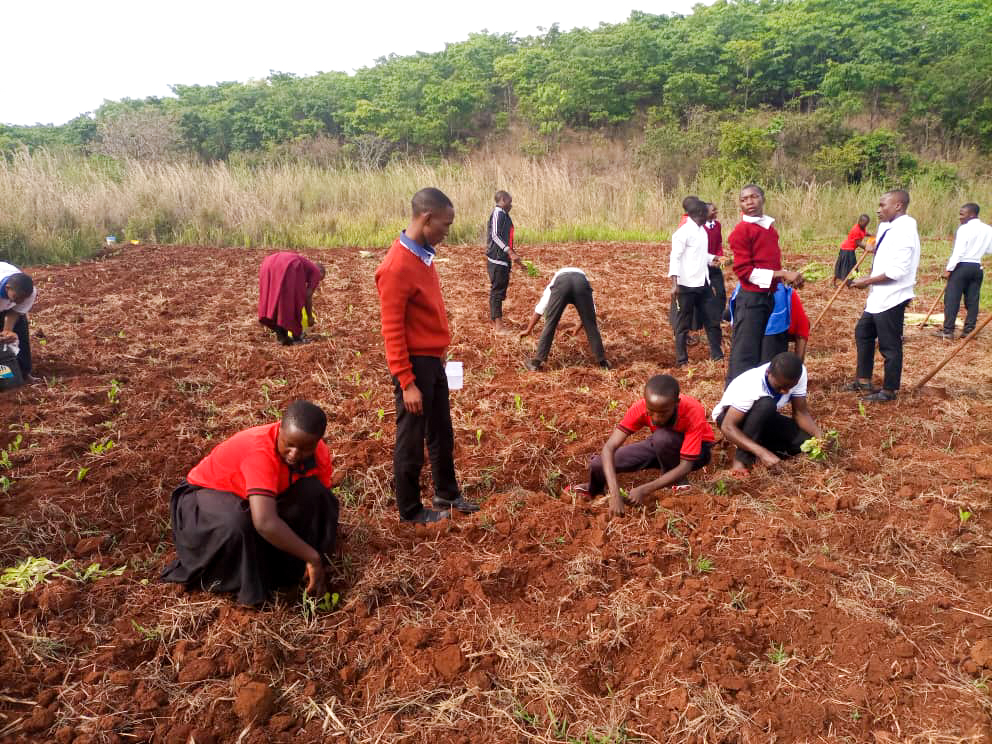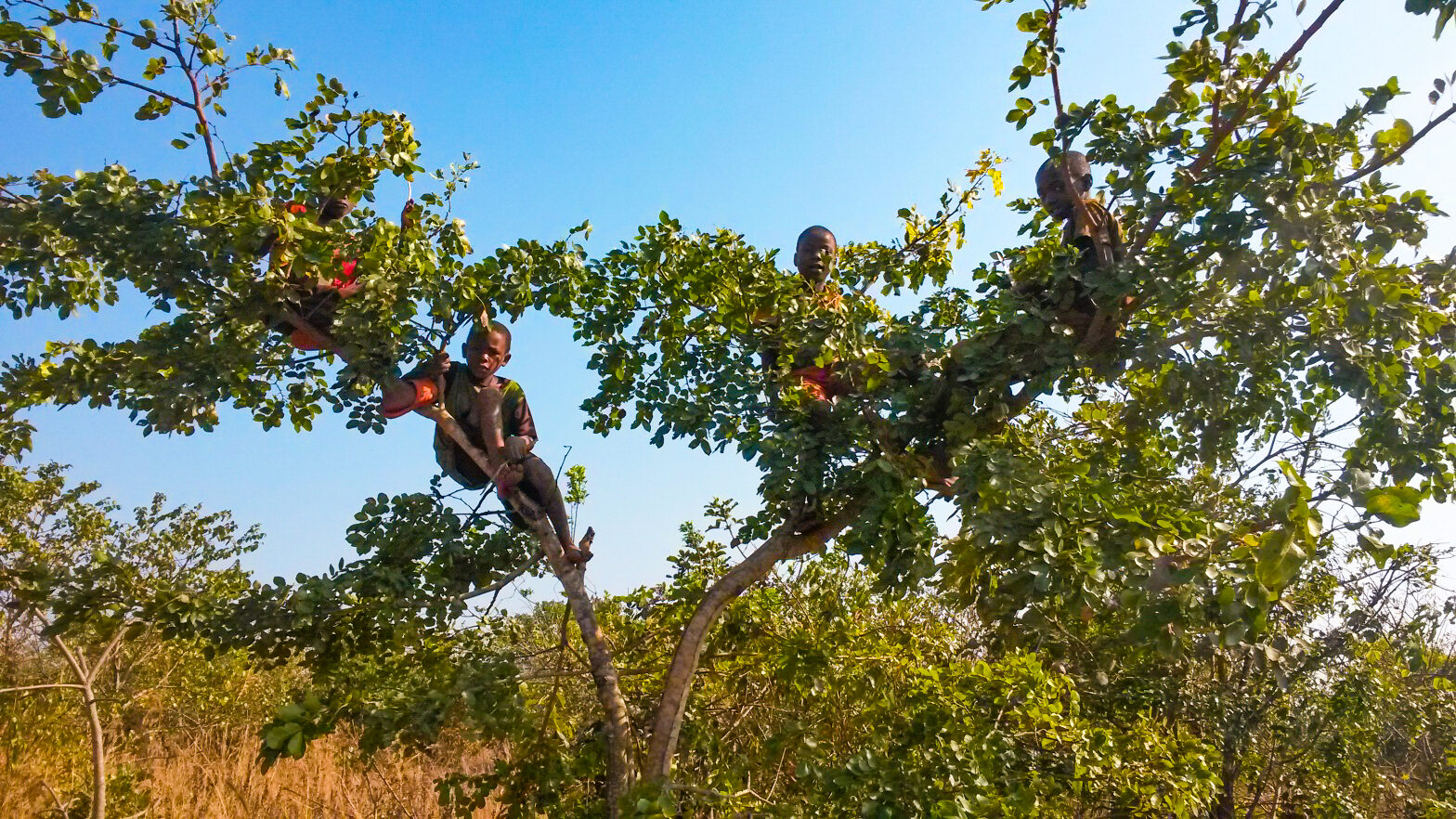Environment
The impacts of climate change are already being felt in our communities. Rainfall has become more erratic, with long periods of drought, followed by short sharp heavy rainfalls. Extreme weather not only claims lives through water scarcity and flooding but also means that food security has steadily declined. Crops die from either lack of water or flooding. As the annual temperature increases, heat stress means that fewer crops are produced, and the likelihood of pest and disease damage increases.
As the climate changes, it may also mean that the transmission of some diseases such as dengue fever and malaria may increase as warmer weather and standing water provide suitable conditions for vectors such as mosquitoes and ticks to thrive. All of these factors will lead to increased poverty, particularly in communities like ours. We know how vital it is for us all to act, to protect and restore our environment – and we are passionate about the work we do. After all, it is our home; it is the lives of our communities that are already being impacted by climate change.
“Climate change is having a growing impact on the African continent, hitting the most vulnerable hardest, and contributing to food insecurity, population displacement and stress on water resources…” – WMO Secretary-General Petteri Taalas.

Tree conservation and reforestation
We love our trees, and it’s heart-breaking to see so many around us being cut down illegally. Income poverty in communities like ours leads to illegal burning of charcoal, timber, firewood and logging. We also know that failing to replace trees, as well as farming at stream banks can cause erosion. Delicate ecosystems are beginning to break down in our forests. Now, more than ever, we are determined to focus our conservation efforts on looking after our indigenous wildlife and habitats. We need to protect new areas and increase our management of existing areas to help them flourish and protect us against the impacts of climate change.
We need our communities to understand that everything in our ecosystem is something to be cherished and ultimately, gives us a better way of living. We need to provide an alternative to damaging practices such as ‘slash and burn’ agriculture and help educate people about their environment and the impacts of climate change.
Reforestation is one of our current priorities. Our vision is to plant our area of Tanzania with thousands of new trees. Seedlings are grown and protected in our nurseries until they are strong enough to be planted. In 2020, we started a three-year plan to plant 200,000 trees in four villages. This project involves 1,000 people and 16 institutions in collaboration with the local government. So far we have planted over 63,600 trees, 51,000 in farms, and 12,600 in schools and other institutions. The new trees are helping restore land and habitats that have been lost, provide shade, as well as fruit, nuts and berries to eat, and are used for natural medicines. Trees such as palm, pines, fruits and drought-resistant Mvengi are being planted, by local schools and health care centres. We have trained 30 youth ambassadors in six schools who are responsible for the upkeep and progress at each site.
Beekeeping
An unusual method for discouraging illegal logging and deforestation has been the introduction of beehives in trees. One benefit of the hives is that angry bees act as a deterrent to anyone considering removing their home! But the hives are also seen as someone’s vital source of income, which means the trees are left alone. Since we began our initial project with 60 hives, we have now hung more than locally made 600 hives that are helping to protect the trees, and deliberate burning of the land is reducing in areas with hives. We have shown communities how bees can be beneficial for income, nutrition and environmental conservation.

Clean energy
Although grid electricity became available in Zeze in 2022, it is still unaffordable for most households. People still rely on wood as the main source of energy for cooking, and kerosene for lighting their homes. This means often schoolchildren cannot study after dark, and when they do, the kerosene smoke causes stinging eyes and coughs.
To address these issues, we provide solar lights to subsistence farmers in Zeze village and beyond, enabling children to study after dark in a smokeless environment. Families can use spend the money they save on kerosene to buy more nutritious food for their children, and maybe even start small businesses. We also manufacture improved clay stoves, which require 50% less firewood compared to traditional cooking stoves. Together with our other strategies, these will hopefully reduce carbon production and deforestation to allow sustainable growth.

Partnerships
Tanzania Development Trust

We proudly work with the Tanzania Development Trust on various projects. MVG’s founder Benedicto is a local representative of TDT, and they strongly support our environmental work. You can purchase trees for us to plant directly from their shop!
1% for the Planet
In 2021, we were very proud to announce that we became official non-profit partners of 1% for the planet!
We are dedicated to taking action to ensure our planet and future generations thrive, and are so excited to join this incredible solution-driven, inspiring and global organisation!
Together, we can truly make a difference.

Climate Stewards


